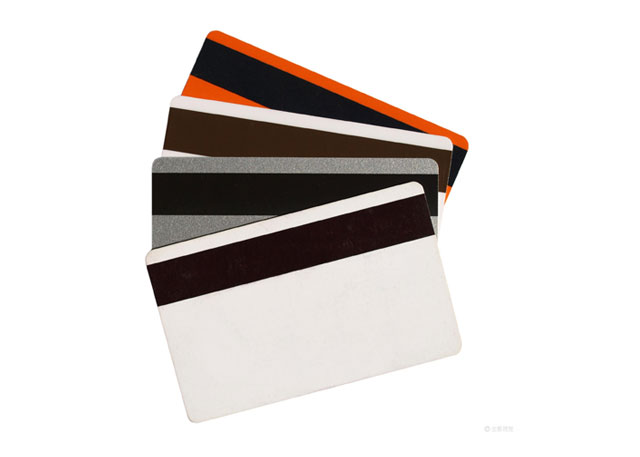

Magnetic stripe card use liquid magnetic material as an information carrier, is made by coating this liquid magnetic material on the card, or pressing a magnetic strip with a width of 6-12mm on the card.
According to ISO7811/2 standard, the fist track of magnetic strip could store 76 alphanumeric characters and is read-only after being written for the first time, and the second track can store 37 numeric characters, which are readable and writable; the third track can store 104 numeric characters, which are readable and writable also. The bank card is used to record information such as balance. The position of the three tracks on the card is strictly regulated in the international standard ISO007811/5.

Magnetic stripe cards are generally used as identification cards, which can write, store, and rewrite information content. They are characterized by strong reliability, high recorded data density, low misreading rate, and fast information input and readout speed. Because the magnetic stripe card is relatively simple to read and write information, convenient to use, and low in cost, it has been developed earlier and has entered many application fields, such as finance, post and telecommunications, communications, transportation, tourism, medical care, and education , Hotels, etc.

The technology of magnetic stripe card has been used for the longest time in the development of card storage data. There are basically two types commonly used: high magnetic (HICO) cards are coded at 2750 or 4000 Oe, and low magnetic (LOCO) cards are coded at 300 Oe.
From a global perspective, before the introduction of the IC card, the magnetic stripe card has been widely used due to its better technology popularization foundation. However, compared with the later comer IC card, there are still shortcomings, such as: magnetic stripe easy Reading and forgery, small amount of information storage, poor confidentiality, which require the support of a computer network or a central database.